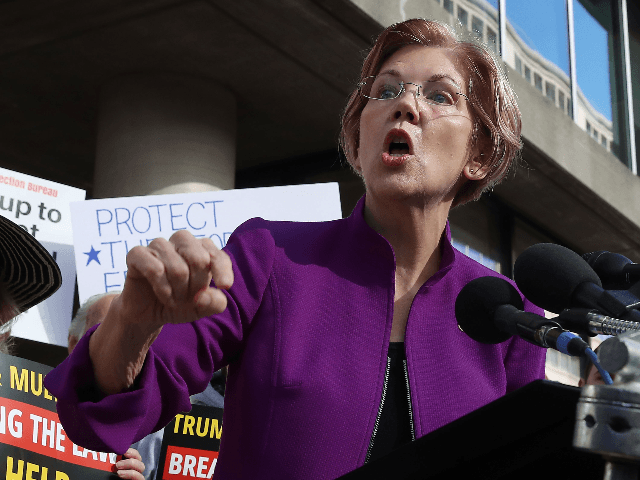The Supreme Court on Friday said it would review a challenge to the constitutionality of the Consumer Finance Protection Bureau.
Congress created the Consumer Financial Protection Bureau (CFPB) in 2010 as part of its package of financial regulation reform known as the Dodd-Frank Act. The bureau was the brainchild of Sen. Elizabeth Warren (D-MA) when she was a law professor at Harvard. She is so proud of the bureau that she lists the CFPB as one of her children on her Twitter profile.
In an attempt to insulate the CFPB political influence, Congress gave the bureau’s director a fixed five-year term and barred removal by the president except for “inefficiency, neglect of duty, or malfeasance in office.” The leadership structure is nearly unique in the U.S. government, where agencies tend to be headed by bipartisan commissions or agency heads who serve only as long as the sitting president leaves them in place. Only the Federal Housing Finance Agency has the same structure.
The Fifth Circuit recently held that the FHFA’s structure is unconstitutional because it vests too much executive power in an official not answerable to the president. The CFPB case the Supreme Court has now agreed to hear, Siela Law LLC v Consumer Protection Bureau, challenges the CFPB’s structure on the same grounds.
CFPB Director Kathy Kraninger has said she supports the Trump administration’s position that the CFPB’s director structure is unconstitutional.
The Supreme Court declined to hear a similar case in January of this year after Justice Brett Kavanaugh recused himself from the case.
Breitbart News explained how Kavanaugh’s recusal resulted in the earlier decision to decline the case:
Kavanaugh was still a judge on the U.S. Court of Appeals for the D.C. Circuit when this case was on appeal before that court, and even though he was not on the three-judge panel who heard the case — and so was not required to recuse from the case — he clearly decided to stay above reproach by not voting on the matter.
Many new justices take precisely that same approach, and judicial ethics experts largely applaud erring on the side of caution. For example, Justice Neil Gorsuch recused himself from an important case challenging the constitutionality of a Ten Commandments display because of his service as a judge on the lower court, considering that case overlapped the time of the appeal in that case.
Kavanaugh had previously decided cases involving these constitutional issues, opinions that strongly suggest he would have sided with the challengers here. But without his vote, it would have been impossible for the challengers to win this case, leaving it no surprise as to why the Supreme Court did not take a case that could easily result in a 4-4 tie with no decision.
Kavanaugh has written two opinions challenging the constitutionality of the CFPB’s structure. He first authored an appeals panel opinion declaring the structure was unconstitutional. When that decision was overturned by the en banc U.S. Court of Appeals for the District of Columbia Circuit’s Court, Kavanaugh wrote a dissenting opinion.
Kavanaugh has not recused himself from the current case.
In taking up the case, the Supreme Court also asked the parties to include in their briefs arguments about whether the CFPB section of the Dodd-Frank Act could be carved out or if the entire law would have to be declared unconstitutional because of the defect.

COMMENTS
Please let us know if you're having issues with commenting.